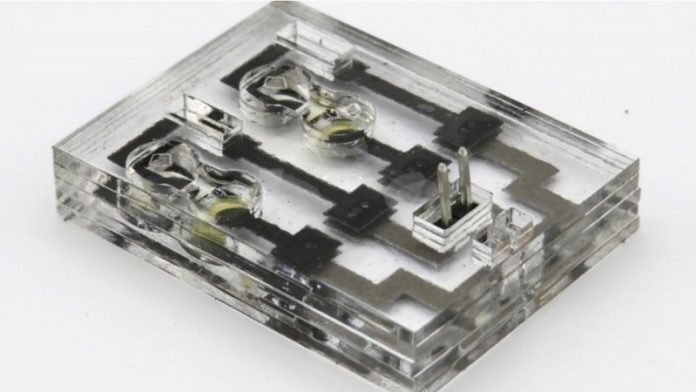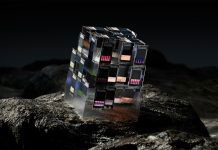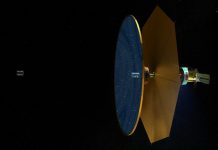
Right now, we live in a world where many of our various gadgets are connected, from computers and thermostats to refrigerators and smart watches.
Futurists are thinking bigger, though.
Thanks to inexpensive computer chips and the ubiquity of wireless networks, they imagine an “internet of things” where pretty much any object — big or small — can feed information to a central database without involving a human being.
One problem: How will all of these sensors be powered so they can do those tasks?
New research from Binghamton University may provide the answer.
In a study to be published in June in the journal Nano Energy, Seokheun “Sean” Choi — an associate professor of electrical and computer engineering— has shown the effectiveness of a newly designed biosolar cell.
Measuring just 3.5 by 2.4 centimeters, the cell generates electricity using two types of bacteria. One is photosynthetic, which means that it (like plants) uses sunlight to turn carbon dioxide and water into nutrients.
The second kind of bacteria lives off of that food and powers the cell through metabolic respiration.
Because the two bacteria have a symbiotic relationship, they provide a four-day power supply — a step up from similar biofuel cells that last for only a couple of hours.
“This system is a practical, self-sustainable power supply for applications, which other small-scale microbial fuel cells so far have not been able to supply,” Choi said.
“The device combines all up-to-date techniques produced by our (Binghamton University) group for more practical applications, including a solid-state microfluidic fuel cell technique, a synergistic co-culture system and a gas-permeable bio-solar system, significantly contributing to the autonomy of the resulting biopower system.”
He believes that this new bio-solar power cell has potential with the internet of disposable things (IoDT), which researchers say will connect short-term consumer goods using wireless sensors made of biodegradable paper and plastic.
With further optimization, it could power longer-term environmental IoT sensing applications.
“Conventional battery technologies have become less practical because of their limited lifetime and environmentally hazardous components,” Choi said.
“Also, battery replacement will be very costly and infeasible for more remote areas. To enable relatively long-lasting operation without environmental issues, energy harvesting from renewable sources will play a key role in future IoT technology.”
This research has been supported by the Office of Naval Research (Microbial Electrochemical Systems Program).
Choi’s study, “A miniaturized, self-sustaining and integrable bio-solar power system,” is co-authored by PhD students Maedeh Mohammadifar and Mehdi Tahernia.
Written by Chris Kocher.



